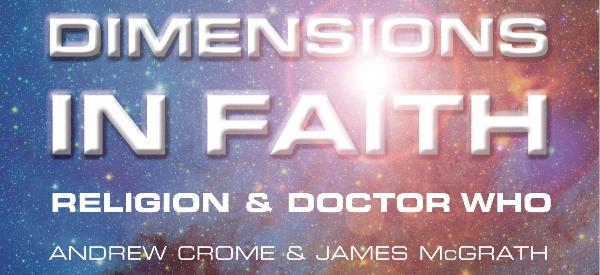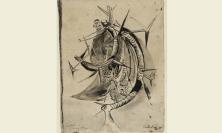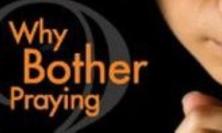Published to coincide with the 50th anniversary celebrations of the world’s longest running science-fiction programme – one which broke another record for television drama during its anniversary episode by being broadcast in 94 countries at the same time – this collection of nineteen essays by theologians and academics seeks to examine religious meaning in a popular show which is often perceived as being the antithesis of religious belief.
Doctor Who was only ever scheduled to last a year at most and was never intended to be anything more than an educational drama for British children; the fact that some people today regard its main character as belonging to the same mythic tradition as Robin Hood and Sherlock Holmes says a great deal about the show’s enduring popularity despite being cancelled twice by the BBC. Words such as ‘Tardis’ and ‘dalek’ have now entered the Oxford English Dictionary and are understood as allusions to the show by many who have never even watched one of the programme’s 800 episodes.
The first ever episode was in fact written by a proselytising Australian Catholic called Anthony Coburn, who had based the eponymous hero on St Paul. This was in 1963, before many of the key points in the programme’s mythology were established: the Doctor’s ability to regenerate did not come along until 1966; his people (the Time Lords) were not introduced until 1969; the Doctor’s home planet was not named as Gallifrey until 1974; and much of Time Lord mythology was only created by writer Robert Holmes in 1976. This collection’s co-editor and contributor, Andrew Crome, who seems to possess an encyclopaedic knowledge of all eras of the show, has fun speculating about the direction the show might have taken if Coburn’s unmade teleplay, ‘The Masters of Luxor’ had been allowed to replace ‘The Daleks’ as the show’s second serial in 1964, given that it presented the Doctor as a character as likely to value religious belief as scientific reasoning.
Readers with little familiarity with the show (and especially the new series; it was re-launched in 2005) might struggle to follow the arguments in this book, despite the helpful way in which the individual essays attempt to fill in the context. This is in part because certain recent episodes have become key reference points for these writers. ‘The Runaway Bride’ (2006), ‘Human Nature’ (2007), ‘Last of the Time Lords’ (2007), ‘The Fires of Pompeii’ (2008), ‘Journey’s End’ (2008), ‘The Waters of Mars’ (2009), ‘The End of Time’ (2010), ‘A Christmas Carol’ (2010), ‘The God Complex’ (2011) and ‘A Town Called Mercy’ (2012) are each referred to in at least half a dozen separate essays. As these are adventures in which the Doctor is often seen making an important ethical decision, being tempted by his darker side or being presented as omnipotent, it perhaps is no surprise that most of the contributors refer to them as key texts. K. Jason Wardley makes some interesting observations in particular about ‘Human Nature’ (an episode where our alien hero has taken on human guise) and many of the contributors use the character’s ability to exist outside of chronological time to consider the nature and desirability of immortality.
Conversely, there are fewer essays that focus explicitly on the original series, which ran from 1963 to 1989. This may be owing to the perception that the show has become darker and more adult in recent years; in one essay on this very theme, Tim Jones makes comparisons between ‘The Curse of Fenric’ (1989) and ‘The God Complex’ (2011) to suggest that fans would prefer the ‘later episode’s obvious and extreme scepticism.’ And yet the notion that the new series is somehow more secular than the original is undercut by Andrew Crome’s observation that ‘Gridlock’ (2007), written by the openly atheistic writer Russell T. Davies, still managed to find itself nominated for the Epiphany Prize for religious programming before the awards committee realised the writer’s views on religion! Such an anecdote demonstrates, as Kieran Tranter notes, that ‘it is difficult to discern consistent values and theme’ in such a vast narrative. One irony, which I am sure the editors would appreciate, is that this book came out just before the anniversary special, which has once again taken the programme in a very different direction!
The weighting in this book of the new series over the old may also be because the current series has focused much more on building up the mythology of its central character and has had clearer story arcs in which the Doctor’s mythology has been subjected to considerable reinvention. Many of these essays focus on recent season finales in which more messianic parallels are sometimes evident. And yet, as Jennifer Miller and other contributors argue, there is now a much darker side to the Doctor in which his ‘monstrous tendencies’ come to the fore – although fifty years ago William Hartnell’s Doctor did try to brain a caveman!
As this book shows, we ‘[viewers] are constantly asked to evaluate the ethics of the Doctor and of his followers’ (Waltonen), and there are a great many ethical and moral issues to debate in this long-running show. And even though the Doctor is not intended to be a messianic figure, his ability to overcome death, his constant battles with evil and the way in which he is often presented as a saviour of the world all help him to come across as a good role model for children in a world often lacking in traditional heroes. As these thought-provoking essays demonstrate, a show that explores ideas of non-linear time, issues surrounding subjective immortality and self-sacrifice may be an important discovery for children raised in non-religious families, as well as a way in to debating these issues with other people.
As co-editor James F. McGrath notes, ‘One can readily discuss very serious topics related to religion using Doctor Who as a jumping off point’, and by dipping in and out of these scholarly essays many fans of the show will certainly find an extra dimension to their enjoyment of it. Doctor Who is an established part of our popular culture and, like a former Jesuit colleague, I can appreciate how inner city students today might more easily connect with Christian thinking through an allusion to how a Tardis might be bigger on the inside than the outside, than by trying to figure out the parable of the mustard seed. Most of my students assume mustard only comes in jars…
Jonathan Lomas is a writer and teacher.






